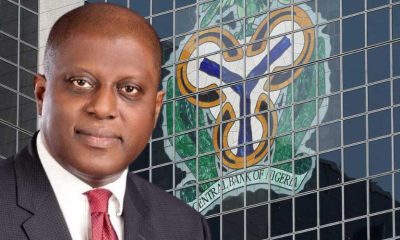Nigeria News
Rich Nigerians Should Be Asked To Pay For Cybersecurity Levy – NESG

The Nigerian Economic Summit Group (NESG) has berated the Bola Tinubu-led federal government over the the newly introduced cybersecurity levy.
Recall that on May 6, the Central Bank of Nigeria (CBN) directed banks and other financial institutions to implement a 0.5 percent cybersecurity levy on electronic transfers which is expected to take effect in two weeks
The new policy had caused an uproar across the country, forcing the House of Representatives to call for a withdrawal.
In a news letter released on Thursday, the NESG said the introduction of the levy is ill-timed and could economically strain the aggregate demand and limit growth.
The group stated that the Gross Domestic Product (GDP) of the country could decline during the immediate policy implementation period.
NESG further said the new levy is coming when the presidential committee on fiscal policy and tax reforms is yet to finalise its mandate.
According to the group, introducing a cybersecurity levy could thwart this essential mandate.
The letter reads: “An increase in tax could stimulate an upward trend in other prices in the economy, further elevating inflationary pressure as businesses immediately factor such a levy as an additional cost into the price of goods and services.
“Furthermore, amidst limited buffers for health, education and food security, the policy will exert an adverse impact on households whose disposable income has been squeezed by persistent inflationary pressure.
“Though levies are efficient revenue-generating instruments for the government, they negatively impact the national economy’s efficiency if their intent is solely revenue-generating without corresponding increased spending or household transfer.”
The group also said introducing a new levy may be “slightly detrimental to household welfare and increase the disparity between the rural and the urban divide”.
It added thatthe cybersecurity levy is “mistimed, considering CBN’s concern about the high rate of financial exclusion and increased currency in circulation”.
It added: “The NESG posits that the levy should be targeted at high-net-worth individuals and a specific amount transferred electronically to allay the fears of the populace, who are still battling skyrocketing food and non-food prices.
“However, if this policy remains, several Nigerians will boycott electronic funds transfers, which does not even bode well for the government due to revenue loss from electronic transfer levy.
”The NESG, however, feels this is a critical time to implement such a policy. The impacts of the fuel subsidy removal, exchange rate reform, and, most recently, the removal of electricity subsidies still permeate the operating costs of businesses and citizens’ welfare.
”The government must be cautious of the numerous strenuous policies that stiffen the purchasing power and welfare of corporations and individuals. Therefore, the government needs to properly sequence reforms for efficient socioeconomic outcomes, especially those that strain the people.
“To avoid conflict of interests and ensure no policy misalignment, the NESG strongly believes that the levy should be deferred and proper consultation until the fiscal policy committee deems it necessary to implement it.”
In terms of the exemption, NESG also said CBN needs to be proactive in monitoring banks’ implementation to curb citizen exploitation.
“With the exemption provided, we anticipate that there will still be overlapping transactions. Therefore, it is imperative for the monetary authority to develop an effective and practical framework to limit the levy to liable transactions,” the group added.












